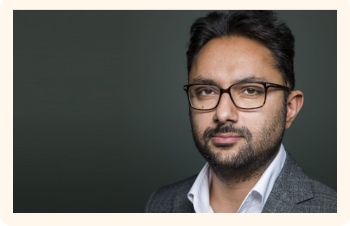This month we were joined by Sarah Brown (Creative Director, Drama) and Claire Armspach (Head of Drama Development) from STV Studios – a leading independent television production company – for a deep dive into Drama Script Development.
Sarah and Claire worked on the script development of the BAFTA-winning drama Elizabeth is Missing. During the masterclass, they revealed what happens behind the scenes during drama development for the small screen and shared a host of invaluable tips for the audience.

Script developers usually only see a small percentage of their work make it to the small screen. Although this can be disappointing, Claire’s tip is to love the process, “You have to see the show as a bonus!” Elizabeth is Missing was the drama that allowed Sarah and Claire to achieve most scriptwriters’ dream: to get to see their work on the small screen. They started the masterclass by retelling their journeys of how they reached this level of their careers. Sarah landed her dream job after working as a researcher, Assistant Producer (AP) and producer in factual TV. She realised her dream role was in scripting for television. She had to work as a freelancer before she started her script development journey through an entry-level job at the BBC, where she was able to build her career. In the small team at STV Claire is the Head of Development. Claire knew she wanted to work in television and as a child, she dreamed of being a drama developer. She soon realised her heart was in development rather than production, so she took the advice to “take any job you can” and started work at the BBC where she was able to take a script development course. From there, she built up her experience working on different shows such as Holby City after joining STV around 11 years ago.
“Love the process. You have to see the show as a bonus!” – Claire Armspach
Sarah and Claire started by sharing their experience of where they find their ideas. Script developers usually get their ideas from three main sources:
- Writer generated
- In-house generated: this means watching trends or other drams for inspiration. A piece of advice that has stuck with Claire is to “notice what you notice” when watching other dramas on TV.
- Pre-existing intellectual property: This is when the format is bought from writers in other formats such as books. In the case of Elizabeth is Missing, the story came in the form of an unpublished manuscript. Claire and Sarah decided to option the script based on their own taste and judgement. (A decision they thanked themselves for later – no doubt!)
“Most broadcasters want something that is the next turn of the wheel – not the remake of something that has already been made.” – Claire Armspach

Sarah then introduced the next step in the script development process: choosing a project to take on. She let the listeners know that it is essential to love the material – as developers will be looking at the script for a very long time! When choosing scripts, she often asks herself fundamental questions about how well she connects to the characters, whether the script will move audiences and whether it will sell. If you’re looking to get into the industry, you have to familiarise yourself with what is being made and what has been made previously – “most broadcasters want something that is the next turn of the wheel – not the remake of something that has already been made.” Using the example Elizabeth is Missing, Claire and Sarah felt that people would fall in with the characters but watch for the mystery – and they wanted to be the one’s to bring the book to the screen.
The producers then covered how to choose a writer to work with. Sarah and Claire look for writers with individuality; writers that have their own voice. Sarah gave valuable advice to budding writers to never “waste your time trying to say something that has already been said”. Being a writer is difficult but it’s important to be open and engage with notes, “it’s important to not lose your compass or lose who you are.” When discussing and answering questions about presenting work in the industry, Claire and Sarah both agreed that although other writing programmes are useful, they would recommend Final Draft as it is the programme the industry works in.
“It’s important to not lose your compass or lose who you are.” – Sarah Brown

The next decision lies with deciding on a format. When trying to develop a script, the aim is to get the project into formal, paid development. When working with a book adaptation like Elizabeth is Missing, it is important to recognise what has to be changed and what has to stay the same. You have a responsibility to the audience and the author to deliver the story they are familiar with.
Sarah and Claire then shared their expertise on being a ‘loyal opponent’ or a good editor. Sarah offered great advice to remember that “editing is like being the midwife at the birth – not giving birth yourself” – it is a supporting role. The key to success is being honest about the problems of the script. While editing, Sarah has found herself in the role of a mentor, sounding board and councillor. She told listeners “the main thing is to remember to be human and that you’re all on the same team – with one goal of making this show the best it can be.” The drafting process can be long and take a lot of work. Claire added that the editing process can be a lengthy one, “script editing is like chiselling a rock to let the statue emerge.”

If you’re wondering how to get started in the script development industry, Sarah optimistically told listeners that there has never been more of a choice in getting into the industry than there is today. The UK is home to over 300 drama indies who are looking for staff. A good way to get your foot in the door is becoming a Development Assistant – it’s the perfect way of getting the experience and the contacts! Claire gave listeners fun advice to watch lots and lots of TV but watch it critically, and question which shows are working well and whose work in particular you admire. She encouraged listeners to look at work they admire and learn from it. Both Sarah and Claire shared their thoughts about how the script development scene in 2020 is very different from when they joined the industry. They acknowledged that there are now fewer opportunities at the BBC; there are more indie companies out there hiring and looking for new, diverse talent.
“The jobs are competitive, so it can feel really hard to break in and know where to start. The key thing is to make contacts, but also watch TV critically – what shows are working and why are people talking about them?” – Sarah Brown
This session was very informative and we learnt so much about the script development process. We want to say a great big thank you to Sarah and Claire for sharing their knowledge, we know our community will benefit from it! If you haven’t already watched it, don’t miss Elizabeth Is Missing.
You can watch the whole masterclass in full via this YouTube link.




